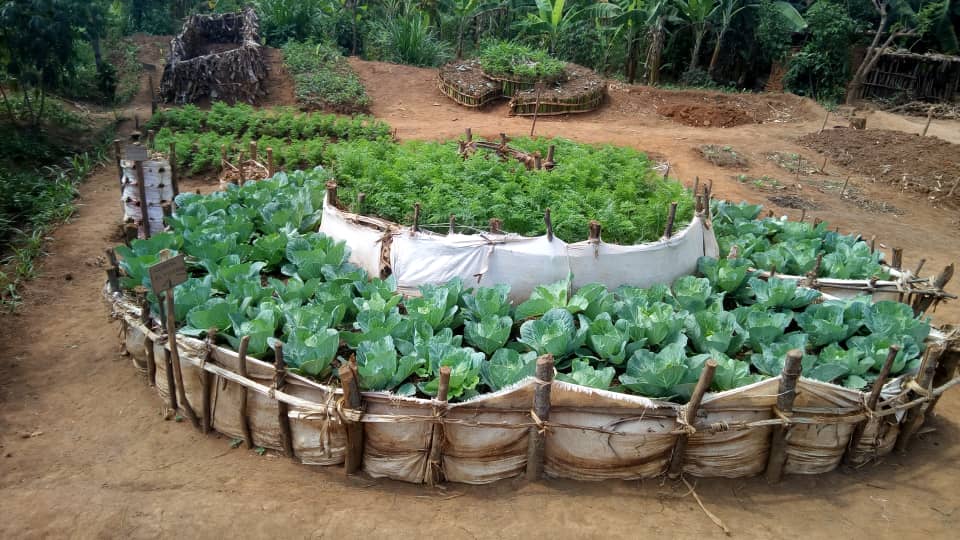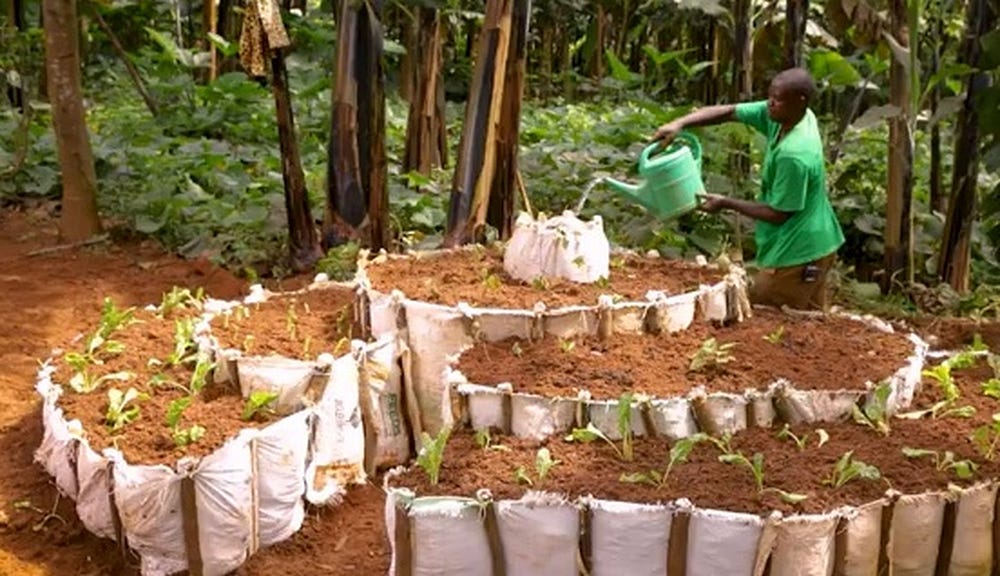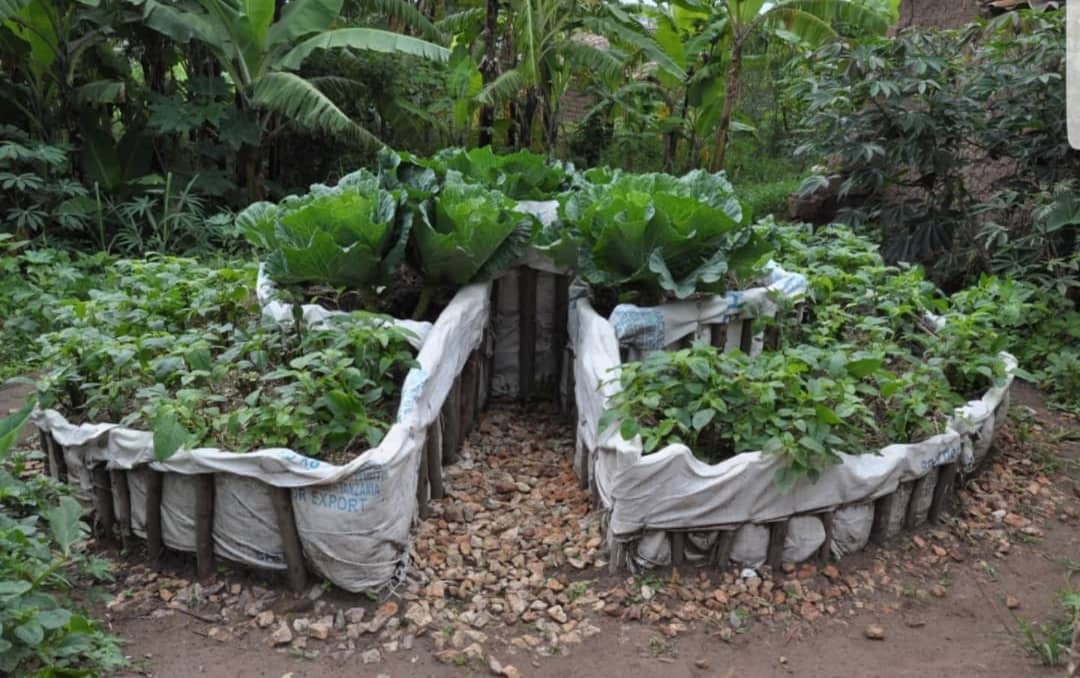Food Security and Nutrition and Food Systems
Desk Review Research on Existing Food System and Policy Frameworks and Their Fitness to Support the African Food Policy
Client: Accord Rwanda founded by AgenceFrancaise de Development (AFD)
In 2021, RCID conducted a pivotal study, commissioned by ACORD, to evaluate the fitness of Rwanda's food system and policy frameworks in supporting the African Food Policy. The study employed a desk review research methodology, complemented by Key Informant Interviews (KIIs), to assess the existing policies and their alignment with the goals of the African Food Policy, particularly in terms of food security, sustainability, and nutrition.
The findings from the desk review indicate that Rwanda's policy landscape reflects a robust commitment to enhancing agricultural productivity and food security. Key policies such as the National Agricultural Policy and the Strategic Plan for Agriculture Transformation (PSTA 4) emphasize technological innovation and market access, aligning with the African Food Policy's objectives. However, the review also identifies critical gaps. While these policies have significantly improved food production, they often prioritize yield increases over sustainable practices, leading to environmental concerns and insufficient focus on nutritional quality. Smallholder farmers, who are essential to Rwanda's agricultural landscape, frequently find themselves marginalized within these frameworks due to limited resources and support.
The study further reveals challenges in policy implementation, particularly in rural areas where infrastructure and resources are lacking. Institutional capacity constraints, fragmented sectoral policies, and inadequate data systems hinder effective policy monitoring and adjustment.
To address these issues, RCID recommends strengthening the inclusivity of policy-making processes, enhancing institutional capacities, improving intersectoral coordination, and harmonizing regional trade policies. By prioritizing sustainability, nutritional quality, and smallholder integration, Rwanda's food system can better support the African Food Policy, ensuring long-term food security and environmental resilience.
Food System Transformative Integrated Policy (FS-TIP) in Rwanda
Client: International Food Policy Research Institute (IFPRI), Tony Blair Institute for Global Change, the Rockefeller Foundation, and AGRA
In 2021, an extensive assessment of the Food System Transformative Integrated Policy (FS-TIP) was conducted in Rwanda. This study, a collaborative effort between consultants at RCID, the International Food Policy Research Institute (IFPRI), the Tony Blair Institute for Global Change, the Rockefeller Foundation, and AGRA, aimed to evaluate the effectiveness of FS-TIP in driving sustainable and inclusive food system transformation in Rwanda.
The assessment identified that FS-TIP has made significant strides in integrating environmental and social dimensions into Rwanda’s food system policies. Key findings from the study revealed that while Rwanda has implemented policies that align with FS-TIP’s goals, challenges remain in ensuring these policies translate into tangible impacts on the ground. The impact of the study has been substantial, influencing policy adjustments that aim to strengthen cross-sectoral collaboration and promote more inclusive and sustainable practices.
The development of supra-indicators provided a comprehensive framework to monitor and evaluate the impact of policies on critical areas such as biodiversity conservation, climate resilience, nutritional outcomes, and gender equity. These indicators helped to highlight the interconnectedness of different policy areas and the need for a holistic approach to food system transformation.
Final Evaluation of Kitchen and School Garden Program in Rwanda
Client: ICON founded by EU
The European Union Delegation to Rwanda, in collaboration with the Government of Rwanda, established the Kitchen and School Garden Programs as part of two significant financing agreements: the Decentralized Agriculture Support (RW/FED/2009/021-572) and Rwanda's National Multi-Sectoral Strategy to Eliminate Malnutrition (FED/2013/024-780). These initiatives, implemented between 2009 and 2017, aimed to address malnutrition across the country and were vital performance indicators within these agreements.
To evaluate the effectiveness of these programs, RCID in partnership with ICON Institute Belgium, conducted a final evaluation from November 2017 to March 2018. The evaluation covered a sample of 2,815 households and 107 schools across 11 districts in Rwanda.
RCID's primary role in this evaluation was to assess the impact of the Kitchen and School Garden Programs on national policies, strategies, and projects aimed at reducing malnutrition at the household level. Specifically, the evaluation focused on the promotion of vegetables that are culturally preferred and nutritionally beneficial, particularly in addressing common nutrient deficiencies in Rwanda, such as vitamin A and iron.

low-cost solutions

low-cost solutions

low-cost solutions
Additionally, RCID explored low-cost solutions for regions prone to drought, emphasizing the use of drought-resistant crop varieties, recycling household greywater, and implementing water harvesting techniques. Another key aspect of RCID’s evaluation was to gather lessons learned and best practices from various stakeholders, including NGOs and local organizations, to enhance the effectiveness of kitchen gardens in fighting malnutrition.
Through this comprehensive evaluation, RCID contributed valuable insights into the sustainability and impact of the Kitchen and School Garden Programs, providing guidance for future initiatives in Rwanda's fight against malnutrition.
Final Performance Evaluation of Kirehe Food Security Project
Client: Association des Eglises Baptistes au Rwanda (AEBR), funded by Canadian Baptist Ministries (CBM) and the Canadian Foodgrains Bank (CFGB)
The Kirehe Food Security Project, funded by Canadian Baptist Ministries (CBM) and the Canadian Foodgrains Bank (CFGB), was implemented by the Association des Eglises Baptistes au Rwanda (AEBR) from 2018 to 2020. This three-year agriculture and livelihoods project targeted 11 villages in the Kirehe District of Rwanda's Eastern Province, benefiting 1,329 households, approximately 6,645 individuals. The project aimed to support smallholder farmers with limited resources, such as land, skills, seeds, and tools, to address food shortages common in the region. These farmers also faced challenges related to water scarcity for crops and livestock, impacting their ability to maintain food supplies year-round.
The project focused on helping the most vulnerable farmers by providing training in conservation agriculture practices. Ten lead farmers were selected and trained in various topics, including soil management, green manure and cover crop use, agroforestry, livestock management, beekeeping, post-harvest and vegetable management, cooperative management, and entrepreneurship. These lead farmers then shared their knowledge with ten other households each, spreading the impact of the project across the community.
RCID Ltd was contracted by AEBR from January to April 2020 to conduct the final performance evaluation of the Kirehe Food Security Project. The evaluation's overall objective was to assess the project's performance, focusing on the level of achievement of project results and its impact on food security. RCID's main tasks included evaluating the development and operational effectiveness of the project, documenting lessons learned and experiences to guide future refinements to the food security operational model, and disseminating knowledge and best practices. Additionally, RCID aimed to ensure accountability to project participants, supporters, and other stakeholders through an externally led, internally supported final evaluation of the project.
Documenting Traditional Culinary Practices (Cuisine)
Client: ACORD Rwanda with support from AFSA
The Documenting Traditional Culinary Practices (cuisine) study, conducted under the "Mobilizing for African Food Policy" (MAFP) project by ACORD Rwanda with support from AFSA, aimed to preserve and promote Rwanda's traditional culinary heritage. The study employed both desk reviews of written sources and qualitative Focus Group Discussions (FGDs), involving 81 participants across eight regions in Rwanda.
The study's primary objective was to generate knowledge on traditional culinary practices, the cultural significance of traditional foods, and the characteristics of a healthy food system. This report serves as a tool for training, sensitization, and advocacy under the "My Food is African" campaign. It emphasized that traditional Rwandan dishes, often cooked in a single pot, primarily use fresh farm ingredients, with beans and milk as key protein sources. These dishes are considered healthier compared to Western diets, which are associated with increased risks of diseases like cancer, obesity, and diabetes.
Respondents noted that traditional food handling and preservation techniques, such as smoking, drying, salting, and fermenting, utilize natural materials like wood and clay. In contrast, the rising preference for Western diets among the youth is attributed to the availability and perceived quality of processed foods, despite their associated health risks.
The report recommends various actions, including mainstreaming African culinary traditions across the continent, creating favorable food policies to protect and promote traditional foods, and educating the youth on the benefits of healthy eating. Additionally, it suggests establishing infrastructure for fast-fooding traditional foods, marketing and branding traditional dishes, and engaging food value chain actors in transitioning to agroecological practices. The study advocates for a coherent food policy that supports resilient agrifood systems, making nutritious foods more accessible and affordable, and encourages the documentation and teaching of traditional culinary practices across Rwanda.
Study on Preserving Farmers' Rights to Peasant Seeds in Rwanda
Client: ACORD Rwanda funded by CCFD Terre Solidaire
Smallholder farmers globally are at the forefront of a critical battle to preserve control over seeds, a fight that is intensifying as industries increasingly employ genetic engineering and agrochemicals. Peasant and family farmers play a vital role in safeguarding traditional seed systems, which are essential for food security, cultural heritage, and biodiversity. Sustainable Development Goal 2 highlights the importance of maintaining genetic diversity in seeds, a principle that has guided Rwanda’s seed policy since the initiation of certified seed production in 1961 through ISAR.
In response to the growing threat of industrial seeds, which often overshadow peasant seeds despite their sustainability, nutritional quality, and resilience to climate change, ACORD Rwanda commissioned the RCID to conduct an in-depth study. This initiative, funded by CCFD Terre Solidaire, aimed to assess the current status of peasant seeds in Rwanda and explore their integration into the existing seed industry.
The study employed a mixed-methods approach, combining desk research with key informant interviews. A total of 47 farmers were interviewed across eight districts, alongside 10 national-level key informants, including representatives from cooperatives, public and private sectors, and NGOs.
The findings revealed that while Rwanda’s National Seed Policy (2007) recognizes the importance of quality seeds for agricultural productivity and food security, there is a lack of information on the role of peasant seeds in addressing agroecological challenges. The study also highlighted the limited involvement of the private sector in promoting peasant seeds, particularly in areas such as nutrition and medicinal values.
Despite their benefits, including resilience to drought, pests, and diseases, peasant seeds face significant challenges within Rwanda’s current seed industry. Hybrid and genetically modified seeds, heavily promoted by the industry, require substantial inputs that drive up production costs and have negative environmental impacts. The study calls for policymakers to invest in the integration of peasant seeds into the existing seed system, subsidize their use, and promote their value through initiatives like the TwigireMuhinzi Extension model. Additionally, it advocates for the recognition of the right to peasant seeds as outlined in international treaties and recommends strengthening partnerships among key stakeholders to ensure the promotion and conservation of these vital resources.
